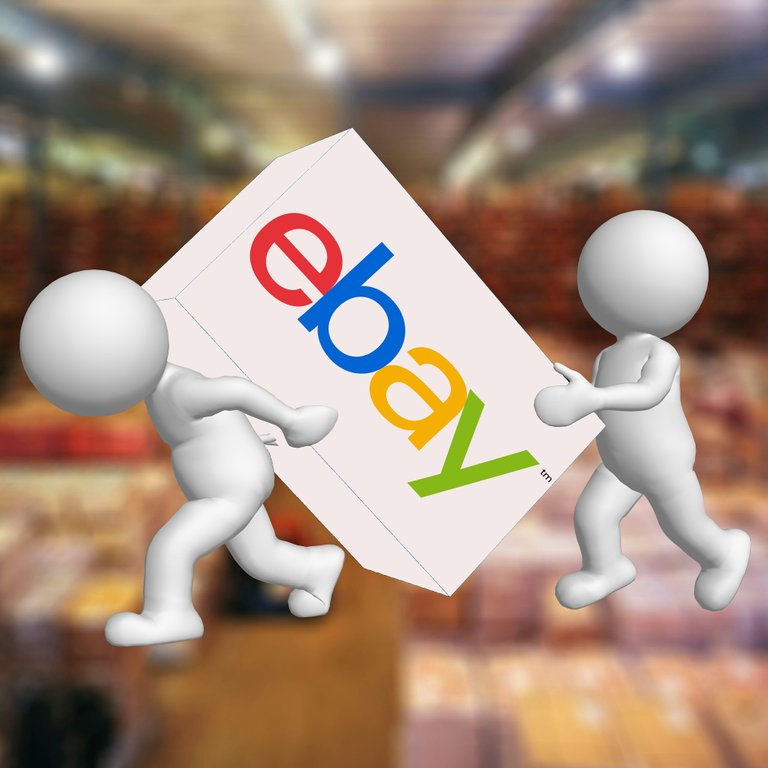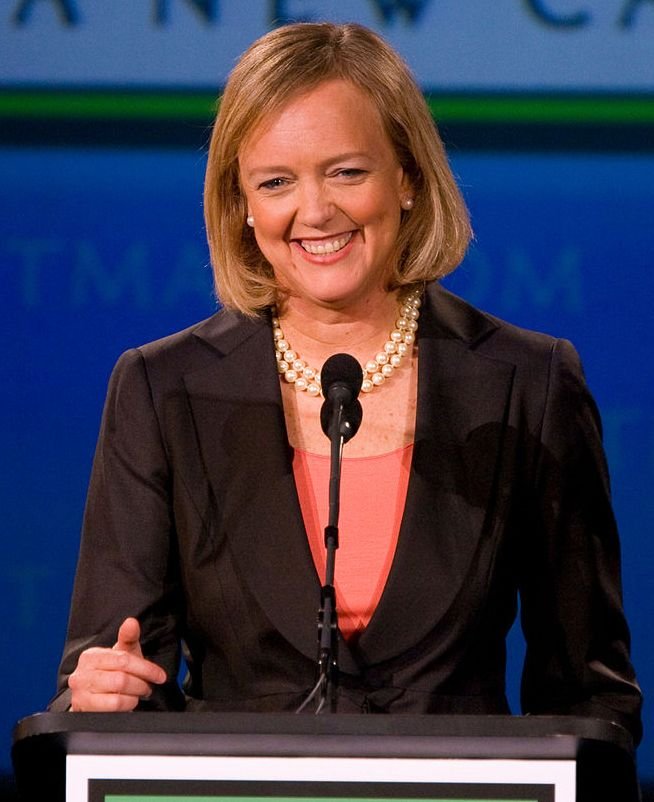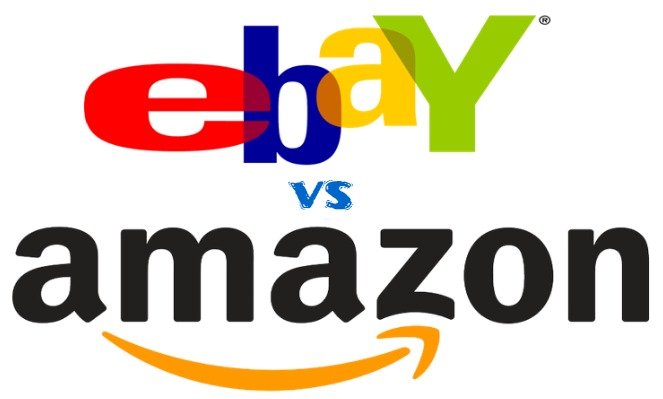
Source: Pixabay
We as a society have reached a point where we can order almost anything we want from almost any place on earth with the reasonable expectation of having it delivered to us within two weeks. It could the latest smartwatch a very expensive laptop or just regular pair of shoelaces for 3 dollars. Chances are that if it's legal you can probably buy it online.
Where it all Started
The company was founded in 1995 by a 28 year old Iranian-American going by the name of Pierre Omidyar and was born in France. He graduated Tufts University in 1988 with a degree in Computer Science and was soon thereafter hired as a developer by an Apple subsidiary. In 1991 he co-founded Ink Development an early e-commerce company, while working there Pierre came up with a lot of ideas about how a modern online marketplace would work but his other partners would never seem to agree with him. The reason for that was that Ink Development worked with what you would call a business to consumer model, which was pretty much a standard in those days.

Pierre Omidyar - Source: Wikipedia
Pierre's ideas didn't really fit that model tough, what he was invisioning was a consumer to consumer platform. That model was completely unheard of at that time, to make his dream a reality Pierre left Ink Development in 1994 and got a job as a developer at General Magic to pay the bills while he was working on his idea. In 1995 Pierre had finally finished writing the code to his platform and released it on 3 september under the name of AuctionWeb.
Like most of the website from that era it looked not so beautiful, but despite of its poor design people like this platform very much. Its simplicity and lack of regulations made it a strong competitor to the large e-commerce sites of the time, the very first item listed on the Auction Web was a broken laser pointer which was sold to a collector of broken laser pointers for the price of 14 dollars and 83 cents.
AuctionWeb was hosted on ebay.com, which was Pierre's personal domain. His first choice for a domain name however was echobay.com but that was already taken by a commodities hedge fund so he shortened it to ebay. The site also hosted a page for his wife's biotech startup called HopeLab wich was a discussion group for Tufts University alumni and an informational page for the Ebola virus. It was a pretty random website but the AuctionWeb section made the whole website immensely popular by 1996. The website was generating so much traffic that Pierre had to upgrade his personal internet connection to a business one. This sudden jump in costs drove him to start charging commissions on every auction, these fees remain the company's main monetization model to this day.
In June 1996 Pierre quit his job at General Magic and hired a programmer going by the name of Jeffrey Skoll to expand the platform's functionality. One month later they made their first successful business deal by negotiating a licensing agreement to sell airline tickets directly on the site. The number of sales was growing rapidly and by the end of the year over 250.000 auctions were being hosted on AuctionWeb. Just six months later in June 1997 that number had increased to over 800.000, that same month Pierre renamed the website eBay.
Some time after that he started sharing his business plan to venture capitalists around Silicon Valley, one particular firm called Benchmark Capital gave Pierre 6.7 million dollars in exchange for a 22 % stake in the company. Benchmark also promised to find a suitable C.E.O. to help run the company and in March 1998, they made good on their promise to hire Margareth Whitman. The former Hasbro executive was a big name in the business world, having also served as anexecutive in Procter and Gamble, Disney, and Dream Works. She turned the ragtag eBay into a structured corporation relatively fast in order to make it more appealing to investors, she removed the drugs and firearms sections and to better spread the word she created a whole new marketing division.

Margaret Whitman - Source: Wikipedia
Margaret felt pretty confident and so in September 1998 eBay went public under her guidance with a listing on Nasdaq for 18 dollars per share. Margaret's trust was justified because on its very first day of trading stocks price went all the way up to 53 dollars. Less than four months later eBay shares were trading at 300 dollars per share, and Pierre had become an instant billionaire.
The company at the time had barely 30 employees and half a million registered users with an anual revenue of 5 million dollars. Altough originally eBay was more of a marketplace for collectible items, it rapidly expanded its assortment until it covered pretty much every legal items you could sell. Legal merchandise however doesn't mean that it can be sold, some of the stuff listed on the site were undiscovered animals, a city in California and an aircraft carrier just to name a few.
Ebay's Decline
Ebay being the major internet corporation that it is, was pretty eager to acquire other tech companies, it has made over 50 acquisitions in its short lifespan the most notable ones being Paypal in 2002 and Skype in 2005. Ebay also owned StumbleUpon and Magento but things didn't work out very well between the companies. In 2008 Margaret resigned from eBay to run for governor of California, a race which she eventually lost and the job of C.E.O. was passed on to John Donahoe.
By that point eBay was a massive company with more than 15.000 employees and annual revenues of almost 8 billion dollars. Despite its size though eBay was already on the decline Amazon was making more than twice as much money and eBay's performance had been stagnating for three years in a row. Donahoe tried to focus on eBay's core e-commerce business by getting rid of most of the company's stake in Skype in 2009.
They got less than 3 billion dollars for it but just two years later Microsoft bought it for the price tag of 8,5 billion dollars. It was pretty clear that Donahoe wasn't doing a good job, he failed to restore eBay's position against China's AliBaba and in January of 2014 he got in trouble with Carl Icahn. The man is a very successful contrarian investor and one of the most famous corporate raiders in history. His trademark strategy is to acquire a large stake in a struggling public company and then to force its management to enact radical changes, his argument was that the base the e-commerce business was dragging down the otherwise successful PayPal company which they acquired in 2002.

Source: Xiangshuiai
Carl Icahn wanted the two companies to split while John Donahoe of course was totally opposed to that idea and a very heated public relations battle ensued. Eventually Carl Icahn succeeded and on July 18th 2015 PayPal was spun off as a separate company, Icahn immediately converted his 46 million eBay shares into shares of PayPal and John Donahoe promptly resigned in defeat. Ever since the split eBay has been struggling to find its place in the world with Amazon being stronger than ever, eBay's attempts of pushing their own version of a global online marketplace have been mediocre at best. PayPal in comparison have been doing great and in just one year they've outperformed eBay by 13%.
Ebay is stuck in a difficult position of slowly becoming the My Space of e-commerce, and the bad news is that there probably isn't an easy way to fix this. The e-commerce industry in general is a prime example of Demand-Side Economies of Scale, what you would normally call the Networking Effect each new user of a given platform increases that platform's value to future users. If you compare the growth of Amazon's user base to that of eBay you will quickly see where things are going. Ebay is definitely in a tough spot and they will need to come up with something truly a innovative if they want to stay around for a long.
Thanks for reading,
Funcore
Wish they would lower thwir fees7
feebay is more like it